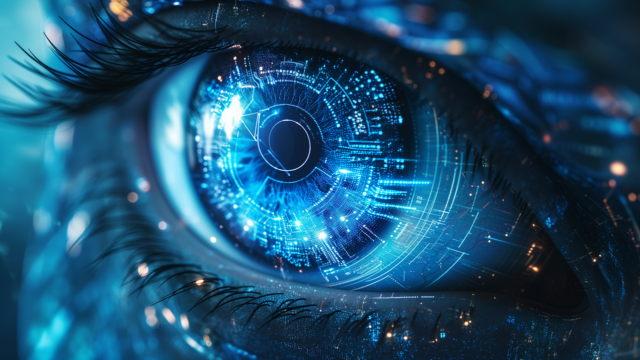Technology is evolving rapidly, influencing how we live, work, and connect with the world. From groundbreaking innovations to subtle advancements, these 10 game-changing technology trends shaping our future in profound ways. This article explores emerging technology trends transforming industries and enhancing everyday life.
Let’s dive into some of the most impactful trends that define our technological landscape.
—————————–Recommendations; Please continue reading below——————————
 ASUS Chromebook C223 11.6″ HD Laptop Shop Now
ASUS Chromebook C223 11.6″ HD Laptop Shop Now
This Asus HD Laptop is an amazon’s choice for ‘chrome computer laptop’ is reviewed by 980+ reviewers that is available at only $249.99. It is ready for productivity and performance while being on the go or travelling, with speedy performance, robust security, and convenience for the user. This laptop has Lightweight 2.2 pound body and with thin and premium metallic finish for a sleek appearance having 11.6 inch HD 1366×768 Anti-Glare Display. The machine is powered by the Intel Celeron N3350 Processor (2M Cache, up to 2.4GHz) for fast and snappy performance including 4 GB DDR3 RAM; 32GB eMMC hard drive; No CD or DVD drive with it. Learn more about this product >>>
 The Future Is Faster Than You Think: How Converging Technologies Are Disrupting Business, Industries, and Our Lives
The Future Is Faster Than You Think: How Converging Technologies Are Disrupting Business, Industries, and Our Lives
In their book Abundance, best-selling authors and futurists Peter Diamandis and Steven Kotler tackled grand global challenges, such as poverty, hunger, and energy. Then, in Bold, they chronicled the use of exponential technologies that allowed the emergence of powerful new entrepreneurs. Now the best-selling authors are back with The Future Is Faster Than You Think, a blueprint for how our world will change in response to the next 10 years of rapid technological disruption.
Technology is accelerating far more quickly than anyone could have imagined. During the next decade, we will experience more upheaval and create more wealth than we have in the past hundred years. In this gripping and insightful roadmap to our near future, Diamandis and Kotler investigate how wave after wave of exponentially accelerating technologies will impact both our daily lives and society as a whole. What happens as AI, robotics, virtual reality, digital biology, and sensors crash into 3D printing, blockchain, and global gigabit networks? How will these convergences transform today’s legacy industries? What will happen to the way we raise our kids, govern our nations, and care for our planet?
1. Artificial Intelligence (AI) and Machine Learning (ML)
AI and ML enable machines to think, learn, and make decisions autonomously. They power innovations from virtual assistants to fraud detection.
Key Applications
- Healthcare: AI aids in diagnostics and personalized treatments.
- Finance: Predictive analytics for fraud detection and investment trends.
- Retail: AI-powered recommendations improve customer experiences.
Future Outlook
The AI market could grow to $190 billion by 2025, fueled by developments in natural language processing and computer vision.
2. 5G Technology
5G brings ultra-fast internet speeds and seamless connectivity, unlocking new possibilities for smart cities, autonomous vehicles, and real-time communication.
Real-World Impact
- Healthcare: Enables remote surgeries with real-time precision.
- Manufacturing: Improves automation and supply chain management.
Market Insights
Expected to grow to $667.95 billion by 2026, though challenges like infrastructure costs remain.
3. Internet of Things (IoT)
IoT connects everyday devices to the internet, offering smarter homes, industries, and cities.
Practical Uses
- Healthcare: Wearables track health metrics.
- Transportation: Smart traffic systems reduce congestion.
- Agriculture: Sensors optimize irrigation and monitor crop health.
Security Note
IoT introduces significant cybersecurity risks, demanding robust defenses.
4. Blockchain Technology
Initially known for cryptocurrencies, blockchain is now used for secure transactions, transparent supply chains, and decentralized networks.
Broader Applications
- Finance: Enables secure digital transactions.
- Supply Chain: Ensures product authenticity.
- Healthcare: Protects sensitive medical records.
Challenges
Energy-intensive operations and scalability issues need solutions.
5. Augmented Reality (AR) and Virtual Reality (VR)
AR enhances the real world, while VR immerses users in entirely digital environments.
Industries Benefiting
- Education: Simulated learning experiences.
- Gaming: Immersive virtual worlds.
- Real Estate: Virtual home tours for buyers.
Future Prospects
The AR/VR market may reach $29.2 billion by 2025, driven by demand in gaming and education.
6. Quantum Computing
Quantum computers can solve problems faster than traditional systems, transforming fields like cryptography and drug development.
Applications
- Healthcare: Speeds up drug discovery.
- Logistics: Optimizes supply chains.
While still nascent, this technology has immense potential as research progresses.
7. Edge Computing
Edge computing processes data closer to its source, reducing latency and enhancing speed.
Why It’s Critical
- Self-driving cars: Instant decisions prevent accidents.
- IoT devices: Efficient data handling for real-time actions.
Market Insights
Expected to grow to $15.7 billion by 2025.
8. Cybersecurity Innovations
Cyber threats evolve with technology. Solutions like AI-driven detection and zero-trust architectures are reshaping security strategies.
Emerging Trends
- AI-powered threat identification.
- Advanced encryption to protect sensitive data.
Organizations are prioritizing robust security to safeguard digital assets.
9. Sustainable Technology
Sustainability is becoming a core focus, with innovations reducing waste and optimizing resource use.
Key Innovations
- Renewable energy systems.
- Green manufacturing processes.
This trend supports eco-conscious consumers while addressing climate concerns.
10. Human Augmentation
Technologies like wearables and brain-computer interfaces enhance physical and cognitive abilities.
Examples
- Fitness trackers monitor health in real time.
- Exoskeletons assist in heavy lifting and mobility challenges.
As innovation accelerates, ethical considerations around privacy and misuse remain crucial.

FAQs about Game-Changing Technology Trends Shaping Our Future
1. Why is 5G technology important for businesses?
5G offers faster speeds and lower latency, enabling businesses to adopt advanced technologies like IoT, AR, and VR for improved efficiency.
2. How does blockchain ensure security?
Blockchain decentralizes data, making it tamper-resistant and transparent, ensuring secure transactions.
3. Are there risks with AI adoption?
Yes, including ethical concerns, algorithmic biases, and job displacement. Responsible implementation is vital.
4. What industries benefit most from edge computing?
Industries like healthcare, automotive, and manufacturing gain the most due to real-time data needs.
5. What is IoT’s role in smart cities?
IoT optimizes energy use, traffic management, and public safety in smart city projects.
Future Trends to Watch
- Decentralized Finance (DeFi): Revolutionizing traditional banking.
- Green AI: Reducing the carbon footprint of AI technologies.
- Biotech Innovations: New solutions for healthcare and agriculture.
By keeping an eye on these trends, businesses and individuals can stay ahead in this rapidly changing landscape.
Now loading...






